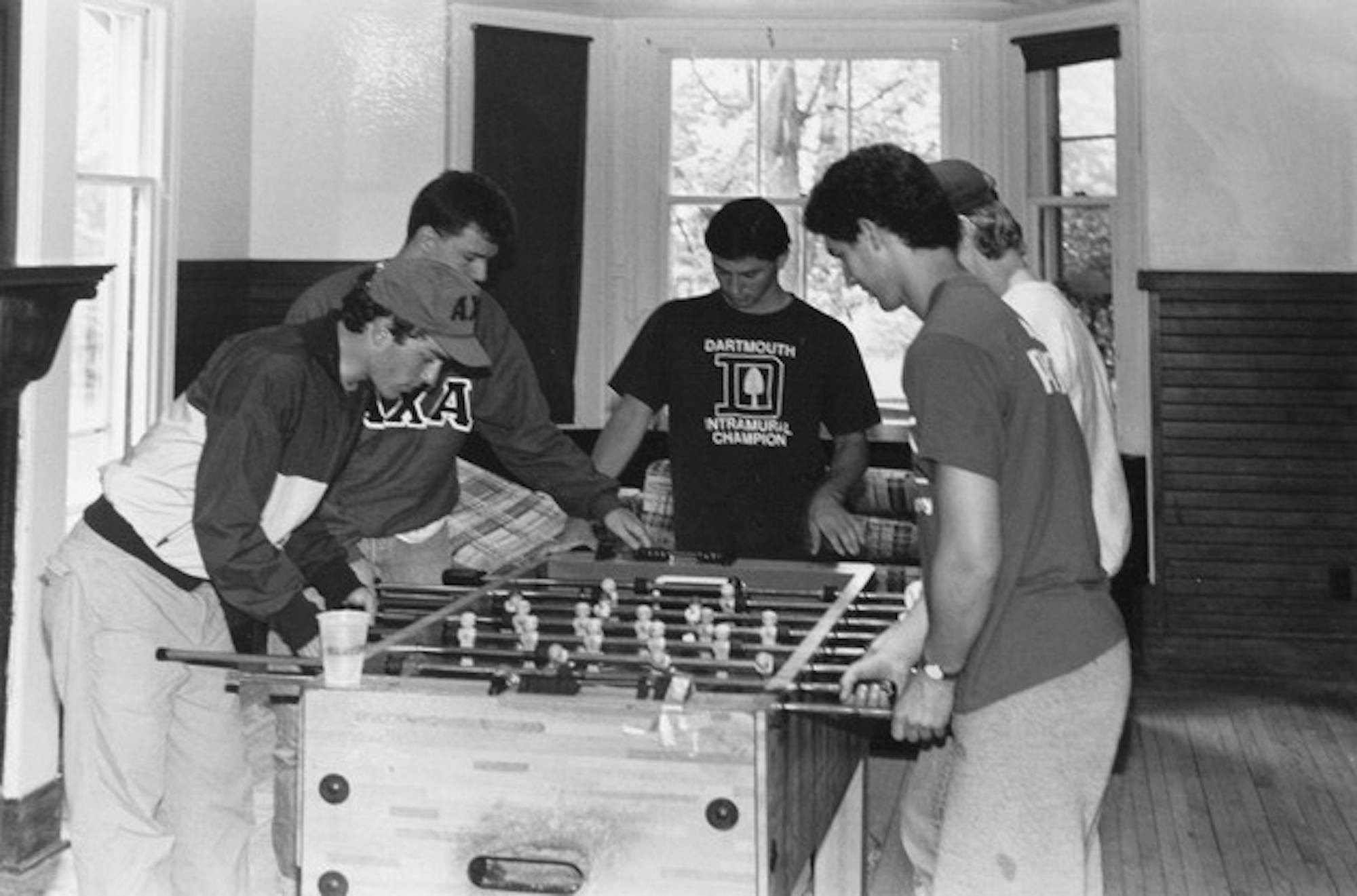It is no secret that a lot of the things that fraternities and sororities tell their new members to wear are silly and, in light of the College's new policies, no longer required. But at a school as old as Dartmouth, for houses that have been on campus for a long time, the gear you spot on their pledges may actually be a part of their history.
As the oldest fraternity at Dartmouth, Psi Upsilon has its fair share of traditions and history in fact, it is rumored that F. Scott Fitzgerald had a few too many libations in the house when he came up for Winter Carnival in 1938. Pledge uniforms aren't quite that old, but according to Psi U president Christian Sherrill '13, they have been around since at least the late '80s to early '90s and have always had the same meaning.
Psi U members have been wearing what is known as their pledge term uniform, or "uni," since their pledges sank their bids earlier this term. The uni consists of jeans, Timberland boots, baseball caps and inside-out white T-shirts and gray sweatshirts.
"To my knowledge, the uni started as a means of uniting our pledges, and that is still true to this day," he said. "A kind of secondary goal is to break down questions of appearance if everybody is wearing a very simple outfit like that, you really stop caring about what you look like and what you're wearing."
While only pledges used to wear the uniforms, all members are now wearing them given the new hazing policies.
Pledges were also given a choice about whether or not they wanted to participate and were made aware of the significance of the uniforms, according to Sherrill.
"Secrecy is a big part of any organization's pledge process, but I think you owe it to the guys to explain to them what's going on," Sherrill said. "It's absolutely clear to them why they're wearing the unis, and I think it speaks volumes that they're willing to. It's something we all think is really important."
Sherrill also clarified a common misconception about the uniforms they do not, in fact, signify the last time members will have to wear working class clothing.
"I don't know who started that rumor, but it's not coming from us," he said. "That's not the case, and it never has been. The unis are designed to unite the pledges so that they can together build up a love for Dartmouth, for Psi U and for each other."
Alpha Chi Alpha sirens are another easily identifiable item of pledge gear that is very much a part of the fraternity's history. Founded in 1956, pictures in the house dating back as far as the early '80s show new members wearing the red baseball caps that can still be seen around campus today.
According to Alpha Chi social chair Ryan Collins '13, the exact story behind the practice of wearing sirens is not clear, but the simple fact that it has been in the house's history for so long demonstrates the importance placed on group cohesiveness.
"The symbolic value of sirens is emblematic of our house and the kind of guys we attract," he said. "We are a very tight group, and they definitely emphasize how close we are as a house. They also make pledges feel like they have a connection to the house, which encourages them to want to get involved."
Like many other organizations' gear, Collins also noted that sirens are viewed as a means of helping pledges bond.
"Historically, you would wear your siren all the time it was sort of a sign of class unity and brought the class together," he said. "Recently, we had to change this because of the College's new approach to hazing, but pledges used to wear them all the way through the second week of Winter term."
While campus culture used to put more emphasis on the practice of stealing sirens from unsuspecting pledges in public areas, the resultant violence forced the College to step in last fall.
"We worked out with the administration that pledges would wear sirens on their belts since they weren't allowed to wear them on their heads," Collins said. "We didn't want future pledge classes to lose that memento since it's a tradition that we've been doing for 30 years."
While many houses on campus have similar traditions to Psi U and Alpha Chi, few date back as far. The gear sported by a house's pledges might even change every few years depending on the whims of upperclassmen. The goals, however, are generally the same uniting a new class and bringing them into an organization that they will hopefully grow to love. It may seem like a weird way of going about it from an outsider's perspective, but at Dartmouth, it somehow makes sense. Part of going to school here is learning or at least trying to learn to appreciate just how powerful items like hair ribbons, fanny packs and jorts can be in bringing people together.




